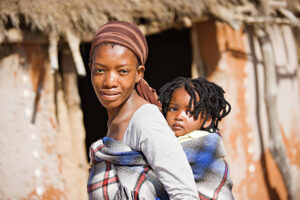Parenting the South African Way: Tips for Every Family
South African Parenting Tips: Raising Happy and Healthy Children

Parenting is a universal journey filled with joys, challenges, and learning opportunities.
In South Africa, with its rich cultural diversity and unique social landscape, parenting takes on its own special flavor.
Whether you’re a new parent or have years of experience, these South African parenting tips can help you navigate the rewarding path of raising happy and healthy children.
Embrace Ubuntu: The Spirit of Community

Ubuntu, a concept deeply rooted in South African culture, emphasizes community, compassion, and interconnectedness. In parenting, this means raising children with a strong sense of empathy, respect, and responsibility toward others.
- Involve the Extended Family: In many South African families, grandparents, aunts, uncles, and cousins play a significant role in a child’s upbringing. Embrace this support system, as it provides children with a sense of belonging and teaches them the value of family.
- Teach Sharing and Caring: Encourage your children to share, not just material things, but also their time and kindness. Participating in community activities or helping neighbors fosters a sense of ubuntu from an early age.
Balance Tradition with Modern Parenting

South Africa is a melting pot of cultures, each with its own traditions and customs. While it’s important to honor these traditions, it’s also essential to adapt to the changing times.
- Celebrate Cultural Heritage: Share your cultural traditions with your children, whether through storytelling, cooking traditional foods, or celebrating cultural festivals. This helps them develop a strong identity and appreciation for their roots.
- Stay Informed on Modern Parenting Trends: Parenting is constantly evolving, with new research and techniques emerging regularly. Stay updated on the latest parenting trends and adapt them to your family’s needs while respecting your cultural values.
Education Begins at Home

Education is a top priority for many South African parents, and it’s never too early to start. Learning at home lays a strong foundation for your child’s academic success and overall development.
- Read Together: Reading to your child from a young age boosts their language skills, imagination, and love for learning. Make reading a daily activity, whether it’s bedtime stories or exploring books that reflect South African culture.
- Encourage Curiosity: Foster your child’s natural curiosity by answering their questions, exploring nature together, and encouraging creative play. This not only supports their cognitive development but also builds their confidence and problem-solving skills.
Foster Resilience and Independence

South Africa’s diverse and sometimes challenging environment requires children to be resilient and independent. Helping your child develop these qualities will prepare them for life’s ups and downs.
- Teach Problem-Solving: Allow your child to solve problems on their own before stepping in to help. Whether it’s figuring out how to fix a broken toy or resolving a disagreement with a friend, problem-solving is a critical life skill.
- Encourage Independence: From a young age, encourage your child to do things for themselves, like dressing, tidying up, or preparing simple meals. This fosters self-reliance and a sense of accomplishment.
Nutrition and Health: The Building Blocks of Growth

Good nutrition and health are crucial for your child’s physical and mental development. In South Africa, where access to resources can vary, it’s important to focus on providing a balanced diet and healthy lifestyle.
- Provide Nutritious Meals: Ensure your child’s diet includes a variety of fruits, vegetables, whole grains, and proteins. Traditional South African foods, like maize meal (pap), beans, and leafy greens, are nutritious and can be incorporated into daily meals.
- Promote Physical Activity: Encourage your child to stay active through play, sports, or family activities like hiking or cycling. Physical activity is essential for their physical health and emotional well-being.
Safety First: Navigating Challenges

Keeping your child safe is a top priority for any parent. In South Africa, where certain areas may pose safety concerns, it’s important to be vigilant and proactive.
- Teach Street Smarts: Educate your child on the importance of safety, whether it’s knowing how to cross the road, avoiding talking to strangers, or understanding the basics of self-defense.
- Monitor Online Activity: With the rise of digital technology, it’s crucial to monitor your child’s online activity and teach them about internet safety. Set guidelines for screen time and ensure they understand the risks of sharing personal information online.
Encourage Open Communication

Open and honest communication is key to building a strong parent-child relationship. Creating an environment where your child feels comfortable expressing themselves fosters trust and emotional well-being.
- Listen Actively: When your child talks to you, give them your full attention. Listening actively shows that you value their thoughts and feelings, and it strengthens your bond.
- Discuss Tough Topics: South Africa’s history and current social issues can sometimes be difficult to discuss, but it’s important to address these topics openly. Whether it’s racism, inequality, or crime, having age-appropriate conversations helps your child understand the world around them.
Lead by Example

Children often learn more from what we do than what we say. As a parent, your behavior sets the tone for your child’s actions and attitudes.
- Model Respect and Kindness: Treat others with respect and kindness, and your child is likely to do the same. Demonstrating positive behavior in your daily interactions teaches your child valuable social skills.
- Show Gratitude: Expressing gratitude for what you have, even in challenging times, teaches your child to appreciate life’s blessings. Simple acts of gratitude, like saying thank you, can have a big impact on your child’s outlook on life.
Conclusion: Raising Tomorrow’s Leaders
Parenting in South Africa is a unique and rewarding journey that combines tradition, community, and modern insights.
By embracing the spirit of ubuntu, fostering resilience, and prioritizing education and health, you can raise children who are not only happy and healthy but also equipped to contribute positively to society.
These South African parenting tips are a guide to nurturing the next generation of leaders, thinkers, and changemakers.





